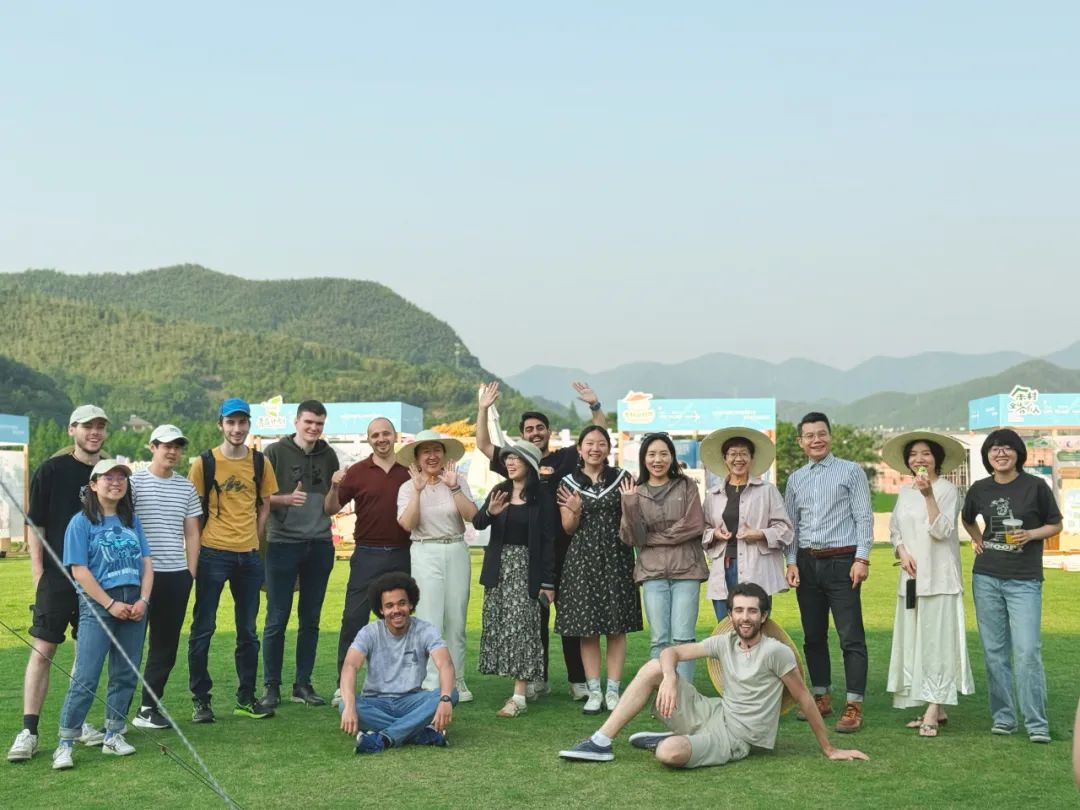“Talent is evenly distributed around the world. China has a wealth of talent—it just needs greater access to quality education. I hope to help more young people realize their dreams,” says John Hopcroft, one of the world’s most influential theoretical computer scientists. Since his first visit to Shanghai Jiao Tong University (SJTU) in 2011, Hopcroft has formed a deep and lasting bond with Chinese higher education.
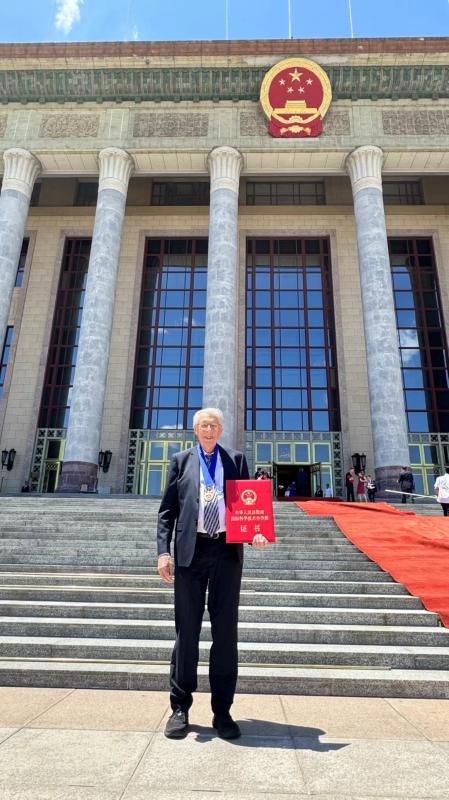
A Global Leader in Computer Science and Education
After earning his PhD in electrical engineering from Stanford University in 1964, Hopcroft began teaching in the Department of Computer Science at Princeton University. In 1967, he joined Cornell University, where he helped establish the Department of Computer Science and Engineering, eventually serving as department chair and Dean of Engineering. Today, he is a Visiting Chair Professor at SJTU and a Foreign Member of the Chinese Academy of Sciences.
Hopcroft’s impact on computer science is undeniable. In 1986, he received the Turing Award, the highest honor in the field of computer science, for his foundational work on the design and analysis of algorithms and data structures. His many contributions laid the theoretical groundwork for modern algorithm design, programming language processors, and computational theory.
Aside from his research, Hopcroft is also a highly respected educator. He played a critical role in shaping computer science into an important academic discipline, authoring classic textbooks such as Design and Analysis of Algorithms and Formal Languages and Their Relation to Automata. Many of his students have gone on to become leading scientists, including multiple Turing Award winners and members of the U.S. National Academy of Sciences.
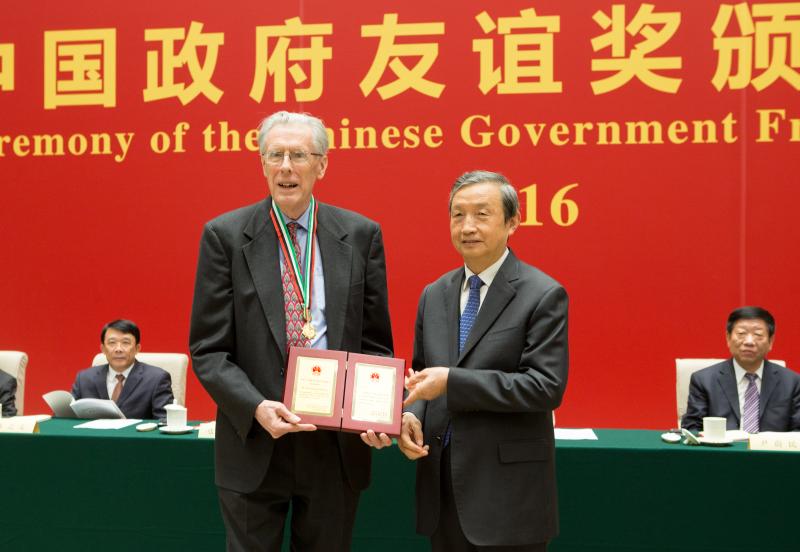
Promoting International Collaboration and Advancing Theoretical Innovation
In 2011, at the invitation of then-SJTU President Jie Zhang, Hopcroft began serving as Chief Professor of Computer Science and Special Advisor to the President, marking the start of a deep and ongoing partnership with Chinese higher education. He has since played a key role in promoting international research partnerships and nurturing top-tier talent in China. He was among the first to propose the creation of a “special academic zone” in China, an initiative focused on theoretical computer science and long-term talent development.
Since its establishment in 2017, the John Hopcroft Center for Computer Science at SJTU has recruited 36 exceptional young scholars from top institutions around the world, including those in the U.S., UK, Japan, and Singapore. Eight of them have been selected for national-level youth talent programs in China, collectively publishing over 300 papers recommended by the China Computer Federation and winning multiple Best Paper Awards at major conferences. According to the global CSRankings, SJTU currently holds the No. 1 spot in Asia for theoretical computer science (2020–2024)—a milestone made possible in part by the Center’s contributions. Inspired by its success, Hopcroft also helped establish similar research hubs at Peking University and Huazhong University of Science and Technology.
In recent years, Hopcroft has collaborated closely with Chinese scholars on social network theory, co-defining key concepts like “community,” “hidden community,” and “core community”—concepts that are now fundamental to analyzing large-scale, complex networks. His team also introduced new metrics for measuring similarity in mid-layer representations in the field of neural networks. Furthermore, he has collaborated on new standards for network robustness, identified limit properties of complex networks, and developed unique approaches for evaluating neural network representation similarity. Lastly, as a senior advisor, he has also contributed to several major international cooperation programs—including talent initiatives put forth by the Ministry of Education and Ministry of Science and Technology—and has actively nominated Chinese scholars for prestigious global awards, elevating the country’s profile in scientific research.
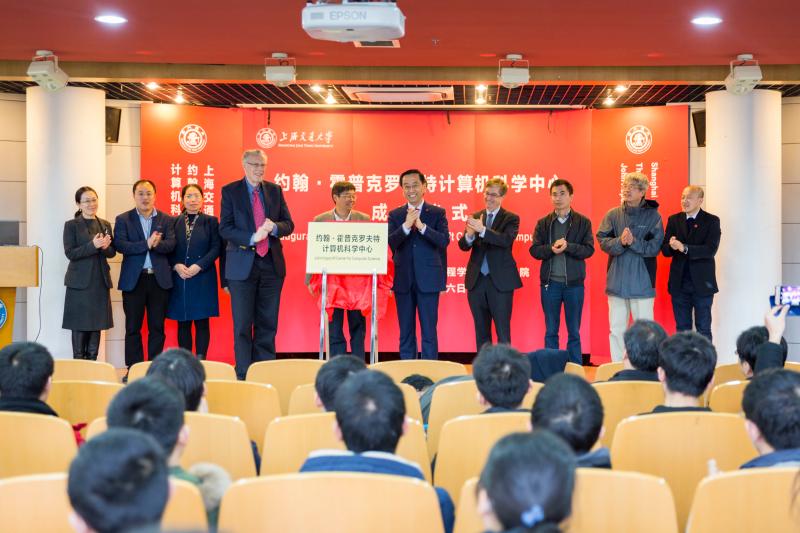
Dedicated to Nurturing China’s Next Generation of Innovators
Hopcroft is not just an academic visionary; he personally engages with students in the classroom. Since December 2011, he has helped design advanced training programs at SJTU and has taught 20 courses, totaled 684 teaching hours, and trained nearly 600 top-performing undergraduates. He has also authored and published two textbooks at no cost to students.
Hopcroft has been equally committed to promoting global academic exchange. Thanks to his efforts, more than 20 internationally renowned scholars—including several Turing and Wolf Prize winners—have given lectures or taught advanced courses to SJTU undergraduates. He has also helped send nearly 200 students to Cornell University for coursework and internships, while broadening collaboration into disciplines such as mathematics and chemistry. In recognition of his outstanding contributions, Hopcroft was awarded China’s Friendship Award in 2016, the highest honor given to foreign experts working in China.
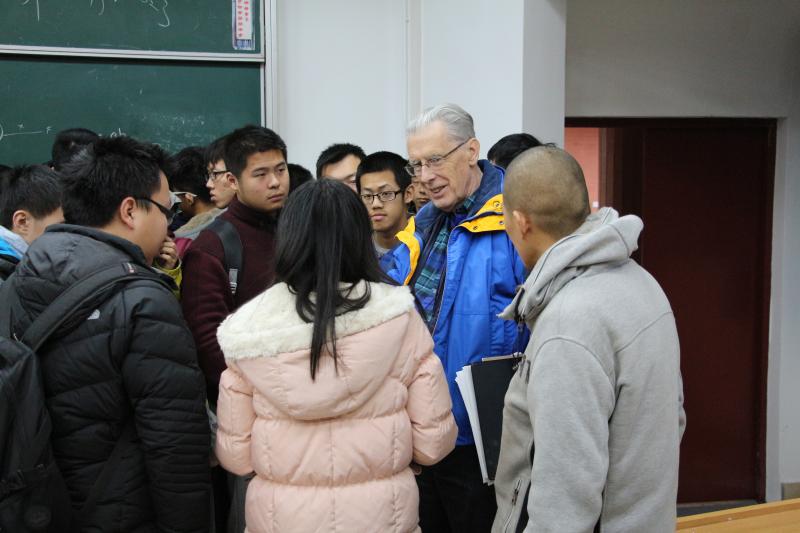
With Hopcroft’s guidance, 33 universities—including Peking University, Tsinghua University, and SJTU—came together to contribute to the initiative. More than 400 faculty members collaborated across core computer science subjects. In 2023, the White Paper on Strategic Talent Development in Computer Science, a flagship deliverable of the 101 Plan, was published by Higher Education Press. Since then, the initiative has expanded into other foundational disciplines such as mathematics, physics, and life sciences, sparking a wave of innovation across Chinese academia.
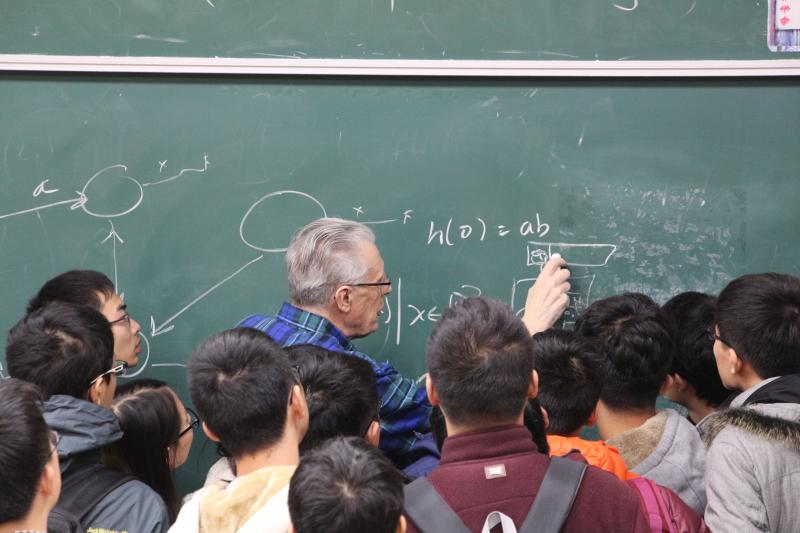
China Feels Like Home
“When I was a freshman, I attended a Q&A session with Professor Hopcroft. He loved sitting with us and having face-to-face conversations,” recalled Tianyu Zhang, a 2021 student from the John Hopcroft Honors Class at Zhiyuan College. “He often guided us on how to plan our academic paths and encouraged us not only to master existing tools and theories, but to dig deeper into their foundations and have the courage to delve into unexplored areas of research.”
For Hopcroft, it all comes down to one simple truth: China feels like home.
“I hope I’m still standing at the podium at SJTU when I turn 100,” he said with a smile. “Helping young people achieve their dreams—that’s what keeps me going.”



